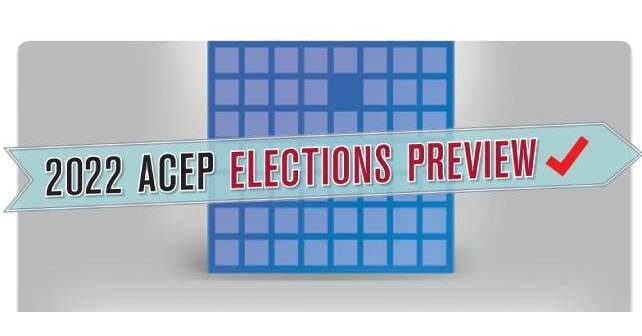
As a two-term ACEP Board of Directors member, I marvel at how well my fellow Board colleagues struggle with and come to important decisions on challenging issues. We are diverse, having representation from various geographic locations, political ideologies, and demographic backgrounds, yet we spend hours having cordial and honest discussions about a myriad of complex and controversial topics; we listen to each other and respect each other’s perspectives. Perhaps most importantly, we are influenceable. We realize that there are several ways to reach an end goal, and that one must be open to exploring them all, while factoring in key elements like unintended consequences, justice, timing, and practicality.
Explore This Issue
ACEP Now: Vol 41 – No 08 – August 2022Having led health policy efforts as an associate professor and advocate in our nation’s capital for over a decade, I understand the necessity, yet challenge of achieving bipartisan wins. The divisive issues in Washington, D.C. are many, but the skilled policymaker and advocate focuses on discovering and exposing commonalities on both sides of the aisle. The best bills are those that are bipartisan and have a Senate and House version; this approach tends to be most efficient relative to energy and often successful.
As we seek to mitigate the effects of divisiveness, being mindful of our emotions, listening, being influenceable, and intently seeking to discover and expose commonality are examples of strategies to employ.
Board of Directors
The candidates for ACEP’s Board of Directors responded to this prompt:
Considering ACEP’s strategic plan, what do you consider to be the top two issues and how should they be addressed?
 William B. Felegi, DO, FACEP
William B. Felegi, DO, FACEP
Current Professional Positions: medical director, Van Buren County Hospital emergency department and Van Buren County Hospital ambulance, Keosauqua, Iowa; EMS medical director, Farmington Ambulance; medical director, Atlantic Health, Morristown Medical Center, Travel MD, Corporate Health
Internships and Residency: emergency medicine residency, Morristown Memorial Hospital, Morristown, New Jersey
Medical Degree: DO, University of New England College of Osteopathic Medicine, Biddeford, Maine (1989)
Response
Career Fulfillment: Tackling tough issues head-on and working with you to tackle frustrations that get in the way of career satisfaction. Unless we have satisfied members, our membership will dwindle or other organizations may be more appealing to our membership, including possible unionization. It is imperative that the College continue to recognize that in order to fulfill our important responsibilities in caring for this nation’s emergency needs, we must ensure that every emergency physician has a safe and secure working environment, adequate resources to perform our vital role, and fair compensation. ACEP needs to maintain its integrity with membership. A long time ago, I learned at an ACEP leadership event that integrity was doing the right thing at the right time for the right reasons. We need to base our priorities, interest, and messaging on strengthening our integrity for members. Our college needs satisfied members, and physician satisfaction starts in the workplace regardless of location (urban, suburban, rural) and regardless of the physician model (independent contractor, locums, hospital—community or academic, contract management group owned by a democratic group, publically traded company, or private equity firm). No one else in America has been given the privilege of dealing and caring for the sickest and most critically injured. Yet, we work in a dangerous and complex environment. The college needs courage in addressing inequities and advocate for an emergency physician “Bill of Rights.”





No Responses to “2022 ACEP Elections Preview: Meet the President-Elect and Board Candidates”